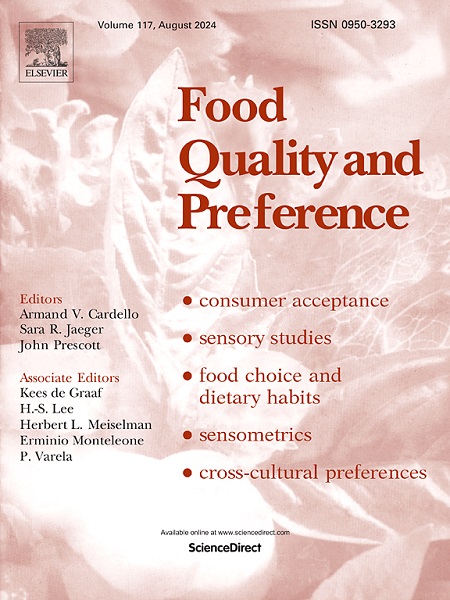Sufficiency in the kitchen: Intention to reuse food leftovers and associated design strategies
IF 4.9
1区 农林科学
Q1 FOOD SCIENCE & TECHNOLOGY
引用次数: 0
Abstract
Household food waste plays a crucial role in the overall global food waste problem. A significant portion of this waste consists of edible leftovers that could be repurposed instead of discarded. However, leftover reuse remains an underexplored strategy for reducing food waste, despite its potential to contribute to more sustainable food consumption. By framing leftover reuse as a sufficiency-driven behavior, this study positions it as a key strategy for reducing food waste and fostering responsible consumption. Following a mixed method approach consisting of qualitative interviews, a survey and creative sessions with designers, this research explores the psychological factors that influence individuals' intentions to reuse food leftovers and provides practical design strategies to encourage leftover reuse. Based on a dataset of 244 households in the Netherlands, we use Structural Equation Modeling (SEM) to test a conceptual model grounded in psychological constructs, assessing factors influencing intention to reuse leftover food. The findings reveal that attitudes, and personal norms are significant factors in encouraging reuse of leftover food, while perceived health risks negatively affect attitudes towards reuse. Based on qualitative and quantitative insights, six evidence-based design strategies were developed to address both psychological motivators and practical challenges. The results contribute to the literature and practice by highlighting the psychological determinants of food leftover reuse and proposing interventions to foster sustainable food consumption practices.
厨房的充分性:剩饭剩菜再利用的意图和相关的设计策略
家庭食物浪费在全球食物浪费问题中起着至关重要的作用。这些垃圾中有很大一部分是可食用的剩饭剩菜,它们可以重新利用,而不是被丢弃。然而,剩饭剩菜再利用仍然是减少食物浪费的一种未充分探索的策略,尽管它有可能促进更可持续的食物消费。通过将剩菜再利用作为一种充足驱动的行为,本研究将其定位为减少食物浪费和促进负责任消费的关键策略。本研究采用定性访谈、问卷调查和设计师创意环节相结合的方法,探讨了影响人们再利用剩菜剩菜意图的心理因素,并提供了鼓励剩菜剩菜再利用的实用设计策略。基于荷兰244个家庭的数据集,我们使用结构方程模型(SEM)来测试基于心理构念的概念模型,评估影响剩余食物再利用意愿的因素。研究结果表明,态度和个人规范是鼓励剩余食物重复使用的重要因素,而感知到的健康风险对重复使用的态度产生负面影响。基于定性和定量的见解,研究人员开发了六种基于证据的设计策略,以解决心理激励因素和实际挑战。研究结果通过强调食物剩余再利用的心理决定因素,并提出促进可持续食品消费实践的干预措施,为文献和实践做出了贡献。
本文章由计算机程序翻译,如有差异,请以英文原文为准。
求助全文
约1分钟内获得全文
求助全文
来源期刊

Food Quality and Preference
工程技术-食品科技
CiteScore
10.40
自引率
15.10%
发文量
263
审稿时长
38 days
期刊介绍:
Food Quality and Preference is a journal devoted to sensory, consumer and behavioural research in food and non-food products. It publishes original research, critical reviews, and short communications in sensory and consumer science, and sensometrics. In addition, the journal publishes special invited issues on important timely topics and from relevant conferences. These are aimed at bridging the gap between research and application, bringing together authors and readers in consumer and market research, sensory science, sensometrics and sensory evaluation, nutrition and food choice, as well as food research, product development and sensory quality assurance. Submissions to Food Quality and Preference are limited to papers that include some form of human measurement; papers that are limited to physical/chemical measures or the routine application of sensory, consumer or econometric analysis will not be considered unless they specifically make a novel scientific contribution in line with the journal''s coverage as outlined below.
 求助内容:
求助内容: 应助结果提醒方式:
应助结果提醒方式:


